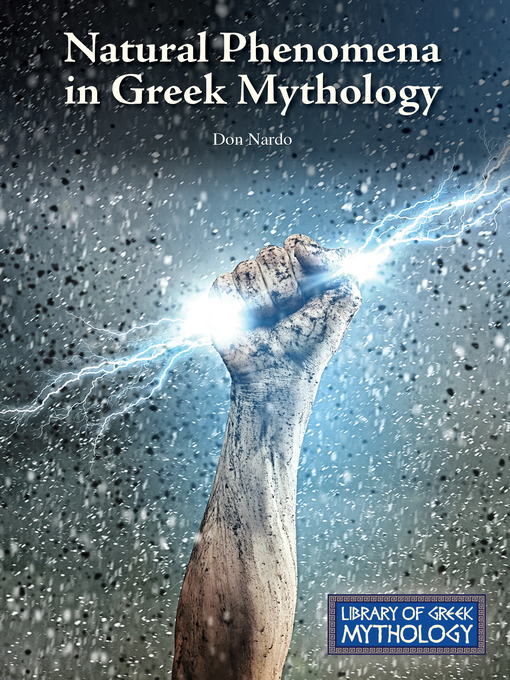Ancient Greek mythology is riddled with tales about natural phenomena. Among them are those that explain how the sun, stars, and other heavenly bodies supposedly came to be. Other myths dealt with the weather, including thunder, lightning, storms, and rainbows. The Greeks also believed that one or more gods were responsible for natural disasters, such as earthquakes, volcanic eruptions, and floods.
- Available now
- Sweeten Up Your Holidays!
- New eBook additions
- Graphic Novels, Manga, and Superheroes!
- New kids additions
- New teen additions
- Most popular
- Try something different
- Resources for Libraries
- New Russian Language Books
- New Spanish Language Books
- "Se me enchina la piel" - Libros espantosos para adultos
- See all ebooks collections
- New audiobook additions
- Full-cast audio
- Great Audiobook Narrators!
- New teen additions
- New kids additions
- Available now
- Most popular
- Try something different
- See all audiobooks collections
- Diverse Families
- Family Road Trip
- Reese Witherspoon's Book Club Reads
- The 100 Best Teen Books of All Time!
- Spies, Lies & Political Intrigue
- Great Adult Books for Teens!
- Transgender/nonbinary reads
- What's Next? Getting to a New Normal
- Twisty Psychological Thrillers
- Need a Laugh?
- Learn English
- African-American Romance
- Burnout: Signs, Symptoms and Strategies
- See all featured collections collections


